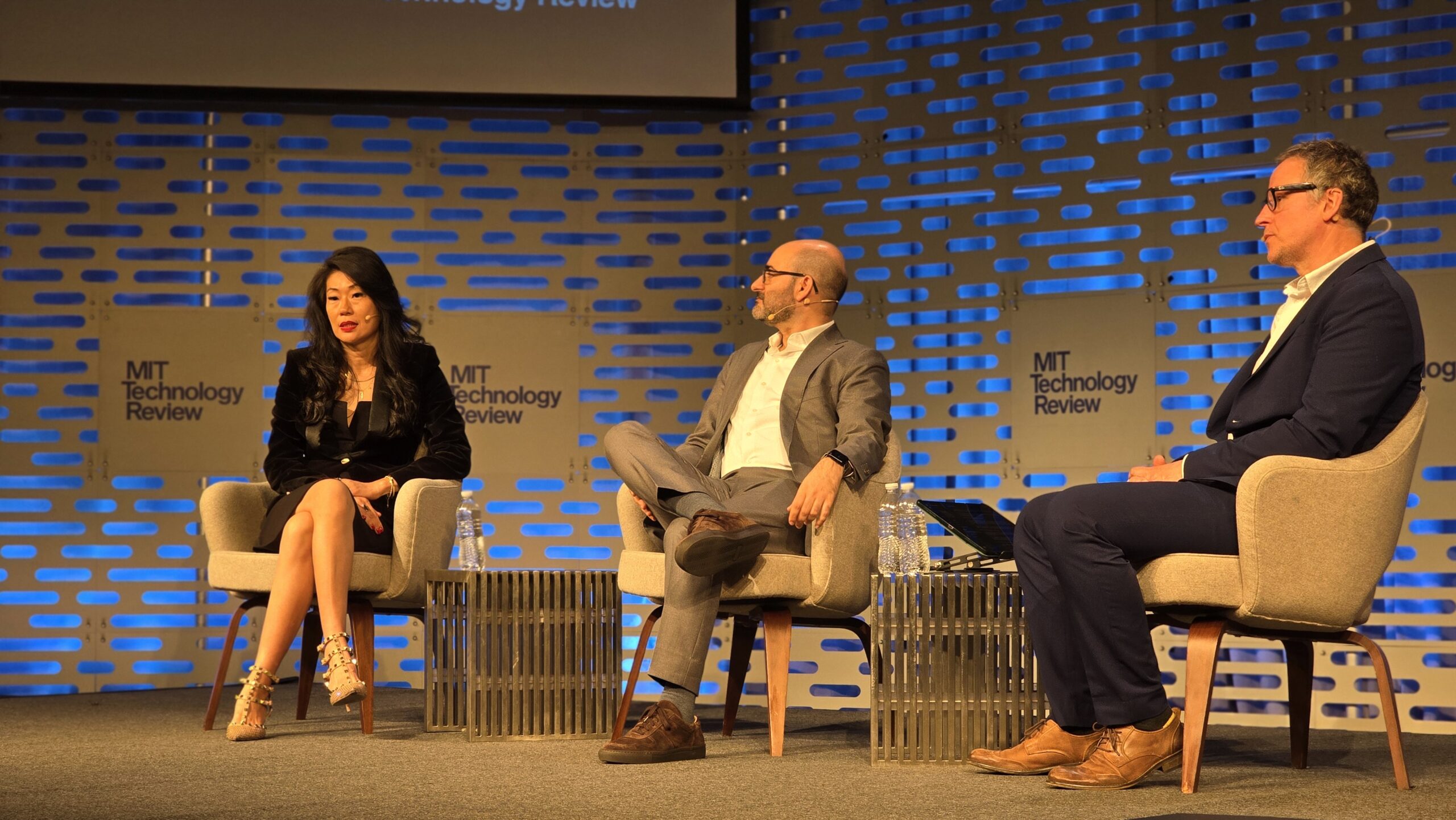Cambridge, MA – MIT EmTechAI: Artificial intelligence is rewriting the rules of intellectual property, thrusting creators, tech companies, and legal experts into uncharted territory. In a lively session at EmTechAI 2025, Tyler Chou (“The Creators’ Attorney” and founder of Tyler Chou Law for Creators) and Amir Ghavi (Co-chair, Technology Transactions, Paul Hastings) tackled the thorniest questions at the intersection of AI and IP: Who owns AI-generated content? How should creators be compensated? And is copyright law still fit for purpose in the age of generative AI?
The Stakes: A Flood of Lawsuits and an Unsettled Landscape
The discussion opened by acknowledging the explosion of lawsuits from creators against AI companies-many of whom allege their works were scraped and used for model training without permission or compensation. Both speakers agreed: the genie is out of the bottle. As Chou put it, “90% of IP has already been trained on-it’s been scraped, it’s been stolen from creators. We can’t put the genie back in the bottle. But what do we do going forward?”
Copyright: The Wrong Tool for the Job?
Ghavi, who represents AI developers in landmark litigation, argued that copyright law may not be the right framework to address these new challenges. He traced copyright’s origins to the early 1700s, emphasizing that it was never meant to be an absolute monopoly and always included exceptions like fair use. In his view, the central legal questions are:
- Is training an AI model on copyrighted data itself infringement?
- Is the resulting model inherently infringing?
- Are the outputs of these systems infringing if they’re substantially similar to existing works?
Ghavi pointed out that U.S. copyright law’s fair use doctrine is central, especially its focus on whether the use is “transformative” and whether it causes market harm. Some judges have signaled that if AI models displace the market for original works, that could weigh against fair use. But if there’s no market displacement, the use might be considered fair.
Chou’s View: Licensing, Not Litigation, Is the Path Forward
Chou, who has spent her career protecting the IP of both Hollywood studios and YouTube creators, believes the real solution is licensing. She argues that most generative AI outputs are commercial, not transformative, and that creators are already being displaced. “The solution is really for licensing-how do AI companies and creators actually work together?” Chou noted the surge in licensing deals, predicting they could reach $10 billion this year, as AI companies hedge against legal uncertainty and seek access to high-quality data.
Chou also emphasized the practical business risks: “Do you want to build your company on bad data? The AI companies that will win are the ones who actually get licenses with studios, publishers, and creators.”
Data Sets, Market Forces, and the Geopolitical Dimension
Both speakers acknowledged that not all data is equal. Ghavi distinguished between widely scraped internet data and valuable, proprietary data locked behind paywalls. As models become more domain-specialized, companies are paying for access to premium data sets. There’s also an ongoing debate over the value of synthetic data versus real-world content.
The conversation turned geopolitical, with Ghavi noting that U.S. national security policy now prioritizes AI leadership-even if that means loosening IP protections to keep pace with countries like Japan, Singapore, and South Korea, where AI training on copyrighted works is permitted. Chou countered that America’s greatest export is its creative IP, and that courts will continue to play a decisive role regardless of executive orders.
Patents, Trademarks, and the Limits of Protection
When asked about patents and trademarks, Ghavi explained that most AI-generated inventions struggle to meet the requirements for patentability, especially around human inventorship. The U.S. Copyright Office has made it clear: only human-made works are eligible for copyright protection. Both speakers agreed that the law is still catching up, and that Congress could step in to clarify how AI-generated works should be treated.
Output Reliability and Business Value
On the question of relying on AI-generated outputs, Ghavi noted that well-engineered systems should not reproduce training data verbatim. If outputs are substantially similar to copyrighted works, it’s usually a technical failure (like overfitting or poor filtering). Chou reiterated that the quality of AI output depends on the quality of the input data-and that businesses should be wary of building on unlicensed or low-quality sources.
The Bottom Line: A Marketplace in Flux
Both Chou and Ghavi agree that the legal landscape is unsettled and that the next few years will bring pivotal court decisions and possibly new legislation. For now, the market is moving toward licensing as the practical solution. As Chou summed up, “At the end of the day, it’s always going to be the dollar that decides everything.”
In summary:
The legal battleground over AI and IP is rapidly evolving. While courts and lawmakers struggle to catch up, creators and AI companies are finding common ground through licensing and collaboration. The outcome will shape not just the future of creative industries, but the very foundation of how AI is built and deployed.
For more information, please visit the following:
Website: https://www.josephraczynski.com/
Blog: https://JTConsultingMedia.com/
Podcast: https://techsnippetstoday.buzzsprout.com
LinkedIn: https://www.linkedin.com/in/joerazz/


Leave a Reply
You must be logged in to post a comment.